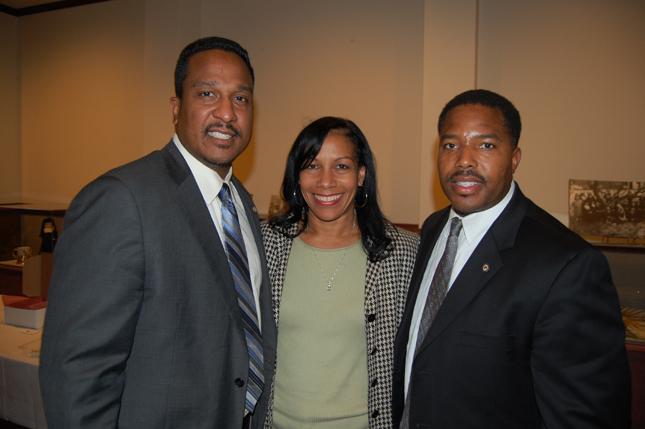Federal Investigation of Gray Throttles Up
By • June 4, 2012 0 1558

Just when you thought it was safe to go to Las Vegas, up comes news—from local television and local newspaper reports—that Thomas W. Gore, a key aide and confidante of Mayor Vincent Gray had pleaded guilty to three D.C. election law misdemeanors and a federal charge of obstruction of justice, all charges relating to the ongoing federal investigation into the mayor’s election campaign and campaign contributions.
A second charge come down May 23: Howard Brooks, a former Gray campaign consultant, was hit with a single count of making a false statement to the FBI. Brooks will likely plead guilty. (Gore’s attorney had told media reporters that more charges would be coming.)
More important perhaps than the news of Gore’s admission of guilt to the charges is the fact that Gore—he was a critical role-player as treasurer in Gray’s election to the Ward 7 council seat and his election to become city council chairman as well as being assistant treasurer of the successful 2012 mayoral campaign—appeared to have been talking to federal prosecutors about his role in the campaign. Most damaging—in the light of the Solaiman Brown’s contentions that he had been paid by the Gray campaign to keep his minor candidate campaign against Fenty alive—was Gore admitting that he had helped facilitate keeping Brown’s campaign alive through payments, by an unnamed intermediary, via money orders to Brown’s campaign.
Brown, considered by many as something of a loose cannon, gained some credibility with the events in federal court this week. The mayor has repeatedly said he was innocent of any wrongdoing in the campaign. Other than that, Gray has generally been silent on the matter which has engulfed many of his closest friends and political associates in the aftermath of election victory including long-time friend Lorraine Green—who ran the campaign and was named chief of staff until resigning.
The investigation remains ongoing. If the Gore revelations are not the other shoe dropping, they’re a sure sign of the laces being untied. Gore also admitted shredding a ledger that kept track of money and money orders after the Brown charges broke in the local media in early 2011.
Brown at the time charged that he was paid to keep his campaign—focused mainly on attacking incumbent Mayor Adrian Fenty, and even urging people to vote for Gray at candidate forums if they wouldn’t vote for him-and was promised a job in the government, which he did initially get before being fire. After he was fired, Brown went to the media, specifically the Washington Post.
- Ronald Machen, U.S. Attorney for the District of Columbia, Trena Carrington, Assistant U.S. Attorney, Second District Community Prosecutor, and Vincent Cohen, Principal Assistant U.S. Attorney.



